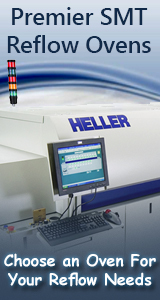Vehicle HMI system is a bridge between driver and vehicle. With the application of all LCD instrument, central control screen, HUD and other electronic products, the driver can more intuitively understand the real-time information of the vehicle.
In recent years, many high-end models at home and abroad are equipped with full LCD instrument display screen supporting three screen interconnection. Facing the huge and complex system data, how should the embedded HMI system deal with it?
With the breakthrough in key technologies of new energy vehicles and intelligent networked vehicles, the development trend of automotive electronics has become irreversible. The application scope of cockpit LCD instrument is expanding with the addition of safety configuration and infotainment system.
Figure 1: Digital control console on automobile for advanced tasks of eye tracking / iris identification, gesture + touch control, face recognition and fingerprint identification.
In recent years, with the rapid development of digital LCD instrument, the display of fuel consumption, calculation of mileage and other functions can not meet the current driving scene. Especially when the new energy vehicle is running, the battery mileage and the real-time working status of the electric drive module need to be accurately displayed. This also makes the car need to be equipped with a powerful SOC processor and highly integrated HMI system to meet the requirements of future driving scenarios.
1. The Rise of Digital Panel and HMI System
The emergence of on-board control system has greatly strengthened the communication between driver and vehicle, which also contributed to the birth of navigation module and on-board entertainment system.
In the early days, digital liquid crystal instrument added liquid crystal display module into the middle of traditional pointer instrument panel to display fuel consumption, mileage and various driving conditions. However, with the development of vehicle towards electrification and networking, the control of vehicle high integration becomes particularly important.
The driver can control the real-time dynamic information of the vehicle just by clicking on the screen and saying the command, which also makes the highly integrated on-board HMI system widely accepted.

Figure 2: HMI design of car control console.
However, the seemingly convenient and fast on-board HMI system tests the software technology integration ability of vehicle manufacturers and parts enterprises. In the past, when importing embedded HMI, design engineers need to input 2D / 3D data into HMI system manually. This often leads to unnecessary costs and vulnerability risks, and the manufacturers are not satisfied with the requirements similar to real-time navigation and 360 ° It is difficult to control the complex design such as look around.
2. How to Make a Difference
Driving scenarios of future vehicles will be more complex.
When the vehicle is transformed from a vehicle to a mobile terminal, the throughput of vehicle real-time data is far higher than before. The design system of embedded HMI will be more complex.
At present, OpenGL ES 3.0 is the standard for the development of high complexity embedded HMI applications. Socionext, a semiconductor product and service provider, has a new embedded HMI system solution - CGI studio.

Figure 3: Fujitsu design of car control system to show tyre condition and car information
CGI studio, as the design tool of embedded HMI system, uses "candera 2D" engine and "candera 3D" engine for 2D / 3D construction and editing, efficiency measurement and improvement, state machine integration / testing, functional security to ASIL standard, and perfect 2D / 3D rendering engine.
The tool has been widely used in various vehicle infotainment and multi screen instrument panel systems in the automotive industry. At the same time, the new version of CGI studio 3.0 tool supports OpenGL es 3.0, which can help vehicle system support navigation, vehicle status visualization, task menu structure and other high-performance 2D / 3D applications.
It can also improve the start-up speed and reduce energy consumption and other necessary automotive applications. At the same time, it can break the bottleneck of complex data processing in traditional HMI system. With the help of socienext's 360 ° technology, it can present a perfect 3D rendering of the surrounding vehicle.
At present, CGI studio design tools have been widely used in high-end models of BMW, Volvo, Ford, Toyota and other brands.

Figure 4: CGI studio has been used in LCD panel design on BMW i8

Figure 5: Panel design of Volvo's new XC90 with CGI studio.
3. About Socionext
Founded on March 1, 2015, the group is headquartered in Japan, providing semiconductor products and services with SOC (system on chip) as the core. The company takes the global layout as its strategy. The group is located in Europe, Asia, North America and other regions, and its headquarters in China is located in Shanghai. Among them, socionext vision system, high-performance SOC, IOT & image solutions, customized SOC, network SOC and Internet image are in the leading position in the industry.
In addition, Socienext not only grasps its own market firmly, but also cooperates with many world-class parts suppliers for its supporting products, and carries them on the latest models such as BMW and Volvo.
In the future, with the help of HMI system, LCD meters can integrate more functional properties. As the best design tool of embedded HMI system, CGI studio can not only reduce the difficulty of software development, but also effectively reduce the cost, providing convenience for embedded HMI designers.
Find HMI products of various brands and sizes on OKmarts








